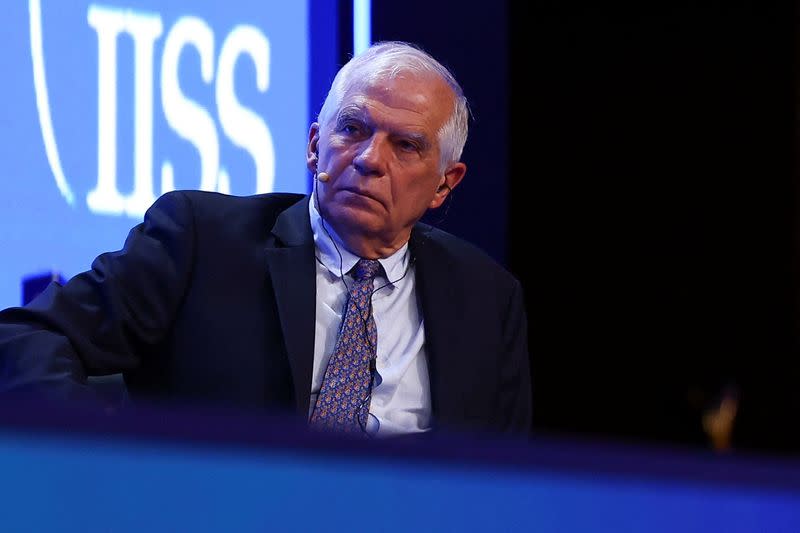EU backs Russian frozen asset plan to aid Ukraine, sparks Hungarian anger

By Andrew Gray
(Reuters) -European Union governments agreed to use 1.4 billion euros ($1.50 billion) in profits from Russian frozen assets for arms and other aid to Ukraine, prompting Hungary to accuse fellow EU members of a "shameless" rule breach to bypass its objections.
EU members had already decided in May to use profits from the assets frozen in the EU to help Ukraine, with 90% of funds earmarked for military aid. But Hungary has been holding up approval of the necessary legal measures, diplomats say.
Hungary maintains warmer relations with Moscow than any other EU country. It does not give arms to Ukraine and Hungarian Prime Minister Viktor Orban has criticised other EU and NATO members for doing so, saying they are fueling the war.
At a meeting of EU foreign ministers in Luxembourg on Monday, chief diplomat Josep Borrell said the usual unanimity for foreign policy decisions was not needed as Hungary had opted out of previous decisions underpinning the scheme.
"We will now speed up, without having this blockage," Borrell told reporters after the meeting.
He said 1.4 billion euros in windfall profits would be available in the coming month and another 1 billion euros by the end of the year. The funds would be used to help Kyiv with air defence, ammunition and support for Ukrainian industry, he said.
EU governments in a military aid committee backed the plan and ministers at the Luxembourg meeting also supported it, diplomats said. Hungarian Foreign Minister Peter Szijjarto said little as Borrell laid out the plan, they said.
But Szijjarto was much more vocal on Facebook.
"This is a clear red line, there was no example of such a shameless breach of common European rules before," he said.
"Obviously, our colleagues in Brussels, our EU legal team is examining the possibility of a legal way to seek justice for Hungary," said Szijjarto, whose government takes over the rotating presidency of the 27-member EU in a week's time.
With the first tranche of proceeds from the frozen assets due soon, EU officials had been urgently exploring ways to bypass Hungary's objections and ensure the money could swiftly help Ukraine.
"I cannot have this money in my pocket - this money is for military support to Ukraine," Borrell told reporters.
The EU's plan for the immediate use of profits from frozen Russian assets is separate from a decision by G7 leaders this month to use future proceeds to fund $50 billion in loans to Ukraine.
(Reporting Bart Meijer, Andrew Gray, Boldizsar Gyori and Anita Komuves; writing by Andrew Gray; editing by Tassilo Hummel, Michael Perry, Angus MacSwan and Tomasz Janowski)


